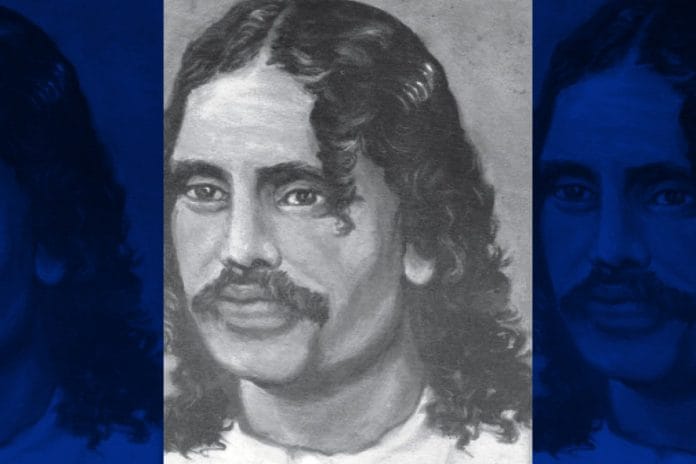New Delhi: Called the ‘father of modern Hindi literature’, Bharatendu Harishchandra was born in Varanasi on 9 September 1850.
He was the son of poet Gopal Chandra. Bharatendu (literally meaning ‘moon of India’) is best known for his sharp commentary on the social and economic state of colonial India.
A complicated relationship with the Crown
Amir Chand, a merchant who played a pivotal role in swaying Mir Jafar, the commander of the Nawab of Bengal during the Battle of Plassey in 1757, was Bharatendu’s great-grandfather. Bengal eventually fell but British commander-in-chief Robert Clive duped Amir Chand of the Rs 30 lakh he was promised for his help.
Nearly a century later, Bharatendu was barely seven years old when the revolt of 1857 took place. Called the first war of Independence, it had left quite an impression on young Bharatendu.
Like many others, he too composed poetry for Queen Victoria. At the same time, his journals were vociferous in their critique of the oppressive policies of the British government.
He wrote: “Andher Nagari, Chaupat Raja, taka ser bhaaji, take ser khaja”, (A dark city, a failing king, a penny for sweets and a penny for onion rings).
These lines from Andher Nagari (city of darkness), one of his most famous plays, effectively portray a city that falls into darkness due to the lack of sound administration, is known to be a popular allegory for British rule in India.
Also read: Munshi for millennials: Premchand and body building tips for the 21st century
Although critics are divided over his approach towards the ‘colonial masters’, there is complete unanimity that Bharatendu launched the first Hindi movement in the country.
‘Hindi, Hindu, Hindustan’
Bharatendu was the man behind what is known as the ‘Hindi vernacular nationalism’. He was the driving force behind the mass movement that culminated in the popular slogan “Hindi, Hindu, Hindustan”.
Written in ‘Khariboli’, his plays, poems, prose and journals were widely distributed across north India. The status of Khariboli, thought of as an inferior language, was elevated as Bharatendu’s journals reached the reading public in the country. His reputation as a Hindi traditionalist is well established.
“The progress of one’s own language is the root of all progress,” one of his couplets reads.
It is easy to view Bharatendu as a precursor to the ‘Hindi Renaissance’. However, he never lived to see the day when Hindi, as the language of official communication in British India, replaced Urdu.
Poet, dramatist, essayist
In a short life spanning 35 years, Bharatendu wrote six plays, and published nearly 14 collections of his poetry. He founded and edited one of India’s first women’s journals, Bala Vodhini. Bharatendu wrote under the pen name, ‘Rasa’, probably borrowing from Natya Shastra.
Also read: Reading Dalit literature changes established accounts of nationalism, colonialism & modernity
He was also the editor of two popular journals at the time, Kavivachansudha (founded 1868) and Harishchandrachandrika (founded 1873), which were known to voice the literary sentiment of the age.
Bharatendu died on 6 January 1885. As a tribute to this great poet and playwright, the information and broadcasting ministry set up the Bharatendu Harishchandra Awards in 1983. Since then it’s been given for excellence in the fields of journalism and mass communication, national integration, women’s issues and children’s literature.






